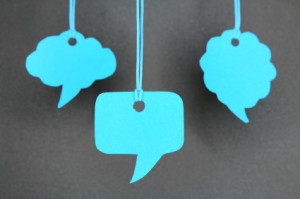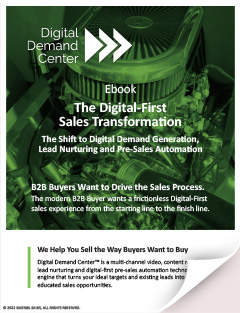How to use social proof to your advantage in b2b sales
This is the second part of a series on social proof in B2B. To read part one, titled, “Why is Social Proof Effective in Marketing?”, click here.
Tips for Using Social Proof in B2B
Social proof5 is a little bit harder to demonstrate in B2B than it is in B2C; a midlevel office software management software is never going to have the “likes” or “followers” that Apple does. However, there are still many ways for B2B companies to leverage the immense power of social proof6 in the buying process; below, we discuss three.
Use social proof7 with language
Not all social proof8 has to be blatantly obvious. You can incorporate subtle messages into the language of your sales and marketing content that hint at your customers’ high level of satisfaction. For example, in an email, say something like, “ 300 customers agree that our solution is the best for . . .” or “Our 99% customer retention rate tells us . . .” to help put customers at ease by giving them a reason to believe you are both credible and trustworthy.
It is best to be as specific as possible to help strengthen the credibility and similarity (in relation to your prospect) you are perceived to have. For example, the sentences above could be changed to “300 of New England’s law firms agree that our solution is the best for . . .” and “Our 99% retention rate of Fortune 500 companies tells us . . .”. These may seem like small details, but they can have a significant impact in helping you earn a prospect’s trust.
Use social proof9 with visuals
B2B companies can also leverage social proof10 through a variety of visual tactics. If your company has clients who are well-respected and well-known, featuring their logos on your website and throughout sales and marketing content is a great way to demonstrate credibility. You can also ask your clients to record video testimonials where they talk about the value your product/service brought to their company. For a CEO in the midst of a purchase decision, seeing another CEO (who is perceived to be both similar and credible) give his opinion on your product or service can be extremely persuasive.
If you are unable to get your clients on camera, you can use pictures instead. Seeing a face next to a written testimonial has been shown to help increase the likelihood of the testimonial being believed.
Use social proof11 with stories
Despite the enormous amount of statistical data now at our fingertips, humans are still much more persuaded by stories. It is not that we don’t like or don’t trust numbers, we just need something more to be genuinely persuaded. Susan Weinschenck, author of Neuro Web Design: What makes them click, explains, “If you want people to act on the data, then you need to couple it with emotional data.” Stories provide this emotional data and when used correctly, can be very powerful in changing consumer opinion and behavior.
To use stories as social proof12 through B2B marketing content, ask your customers to explain a specific time when you were able to help them or describe what the start-up/implementation process was like. By asking them how they felt while working with you, you may get a more emotional and therefore more persuasive response. Here’s an example of an ideal B2B story testimonial:
“My boss was breathing down my neck as I was trying to find a solution for X. He said he wanted something next week, and everything I was looking at seemed either poor quality or too expensive. I was desperate. When I found Company Z, the team was extremely helpful and worked with me to get everything set up running smoothly within three days! My boss hasn’t stopped thanking me since.”
Emotional stories like this are a great form of social proof13 for two reasons. First, they allow prospects to see that another person felt the pain they now feel during the buying process. Second, they allow prospects to imagine the relief and accomplishment your customer felt when they chose you as a solution. By creating emotional associations and connections, stories carry influence that data cannot compete with.
For more on why emotional connection matters in B2B, click here. Feel free to contact us with any questions.



